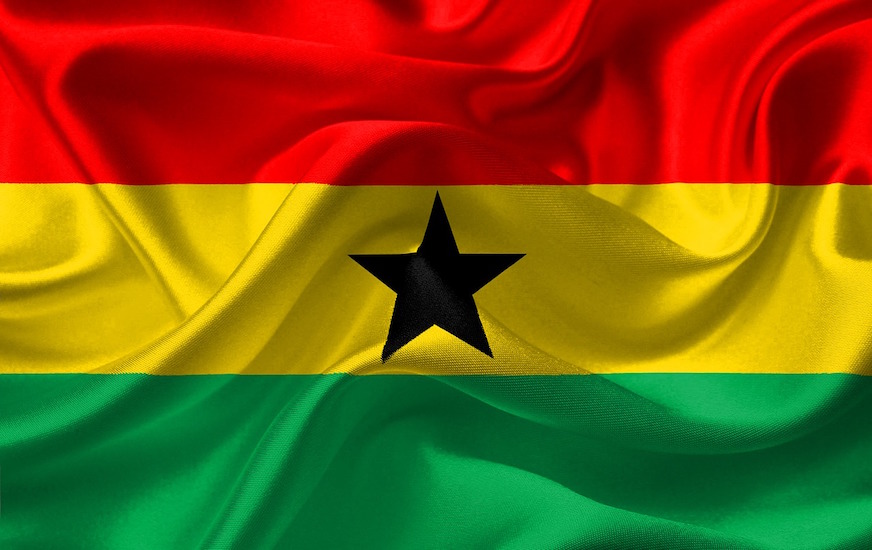This July I was fortunate to have the opportunity to visit Lancaster University Ghana and meet my colleagues at LU Ghana Law School. It was a bit of a flying visit – six days in total – and so I had lots to fit into a short amount of time.
Day One
Upon my arrival in Accra (cue being hit by a blistering heat in comparison to the UK!), I travelled to my hotel and saw my first glimpse of the Ghanaian capital. My main observation: the roads. Driving out in Ghana is nothing like the UK and is a little bit crazy – but there are unspoken rules of the road that bring order to the chaos.
Day Two
On my first full day in Accra, I travelled to LU Ghana and had a tour of the campus. It is a small university, having been established in 2013, but is now expanding with plans to move to a custom-built campus. In true Ghanaian hospitality, I was introduced to every member of staff and had several meetings with my Law School colleagues to discuss teaching and research here in Ghana. I teach and research in Environmental Tax Law – let us just say that Environmental Law is very different here in Ghana! As with most developing countries, the emphasis is on economic development rather than the environment.
I had my first taste of Ghanaian cuisine at lunch time. My colleague suggested I try a traditional dish called Kelewele, which is spicy fried plantain chips (plantain is a banana-like fruit that is a little less sweet). It was delicious. After work, I ventured to a traditional market and bought fresh mangos (for around 5GH₵ for a bag full (around 90p)) and beer (also 5GH₵). The roads are so busy that it is best to get an Uber whenever travelling any great distance – these are cheap, reliable and provide a wealth of conversation.
Day Three
Day three brought with it my first experience of teaching Law Students outside of the UK. I ran a seminar for the eight students currently on the LU Ghana Foundation Programme. This seminar focussed on initial legal skills to prepare the students to start their law studies here at the university. As such we worked on teamwork, oral communication and argument in a negotiation exercise where teams were required to come to an agreement on a bilateral energy treaty between two fictional states. Students had to balance the differing interests of each state to come to an agreement – which they successfully achieved. Overall, I was very impressed with the LU Ghana students; they demonstrated confidence, good oral communication skills and they were adept negotiators. I wish them all the best with their continuing studies. Following the class, I had lunch with a colleague and then spent the evening exploring East Legon.
Days Four and Five
During the weekend I took the opportunity to see a little bit more of Ghana. I travelled to Elmina and Cape Coast. In order to get there, it is necessary to find a Ford (so named because they are Ford minibuses) and buy a ticket. The interesting thing about transport in Ghana is that it does not run on a timetable – the bus will leave when it is full. Fortunately, this did not take too long and the journey to Cape Coast took around two and a half hours. I got to travel through some stunning Ghanaian countryside. Once at Cape Coast, it is necessary to take a shared taxi to Elmina. These taxis, which are different to individual taxis, run much in the same way as buses and will stop regularly to pick people up.
In Elmina I visited Elmina Castle. This is the largest building in sub-Saharan Africa with links to the slave trade. It was a haunting visit. The fishing bays of Elmina were also something to behold, and small boats of all different colours filled the bay. A highlight of the weekend had to be the food. I tried a number of traditional dishes including Tilapia fish, Jollof rice, fried plantain and Red Red. The fresh fruit here, and in Accra, is also incredible – the mangos, pawpaw fruit, pineapple and coconut make for a refreshing treat.
Day Six
On my final day in Accra, I came into work for the last time at LU Ghana. I met with their lecturer in Tax Law where we discussed differences between the UK and Ghanaian tax systems. What is interesting here in Ghana is the fact that there is a massive informal working sector (where transactions are made in cash only). This makes it very difficult to collect income tax from individuals. The results of this are that the rates of tax that can be collected (such as on imports and exports) are much higher to generate income for the government. Another interesting Ghanaian tax is the Airport Tax which levies between $100 and $200 on international flights that land and take off from a Ghanaian airport. The revenues from this tax go to the Ghanaian Civil Aviation Authority and they use the revenues to expand and improve airports. This tax is one of the reasons why travel to Accra is not cheap! After work there was a bit of time for some final chicken wings and Jollof rice, before I made the journey back to the UK.
I would like to thank LU Ghana and the Law School for their kind hospitality. It was fascinating to liaise and discuss teaching and research with my colleagues there. I very much look forward to working with them again in the future!

